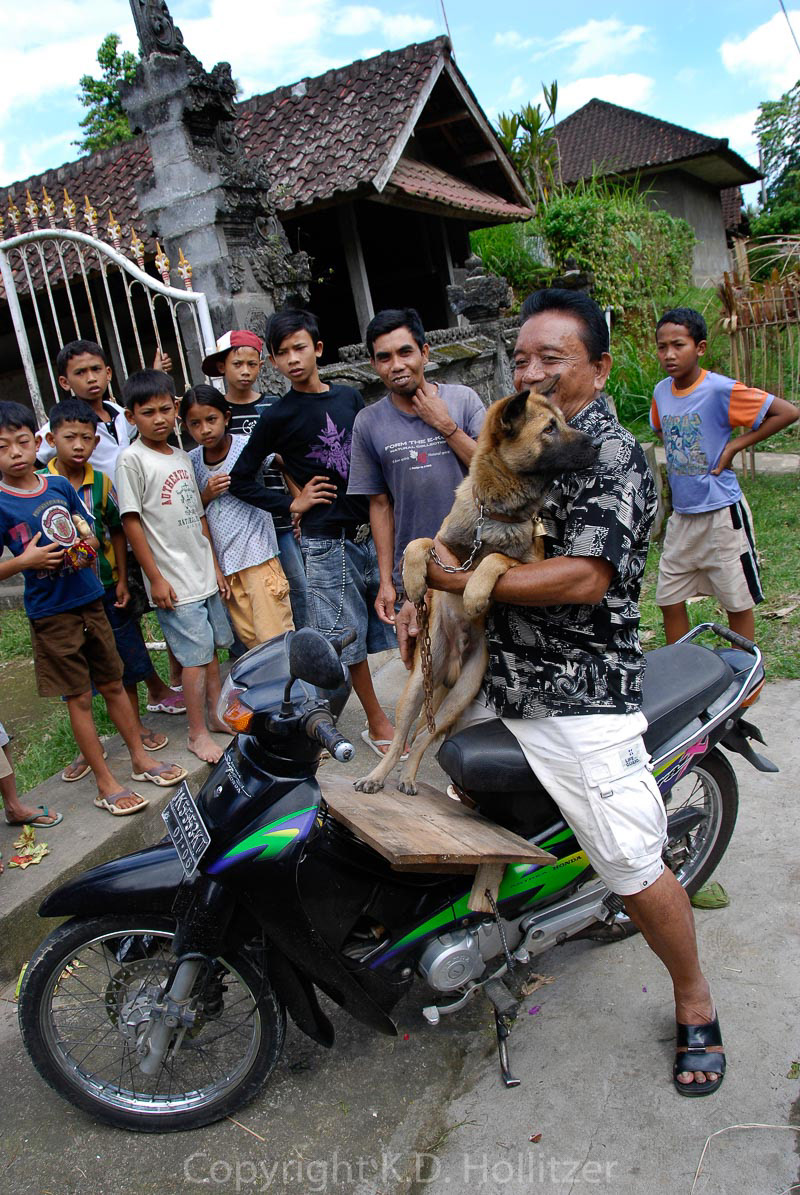

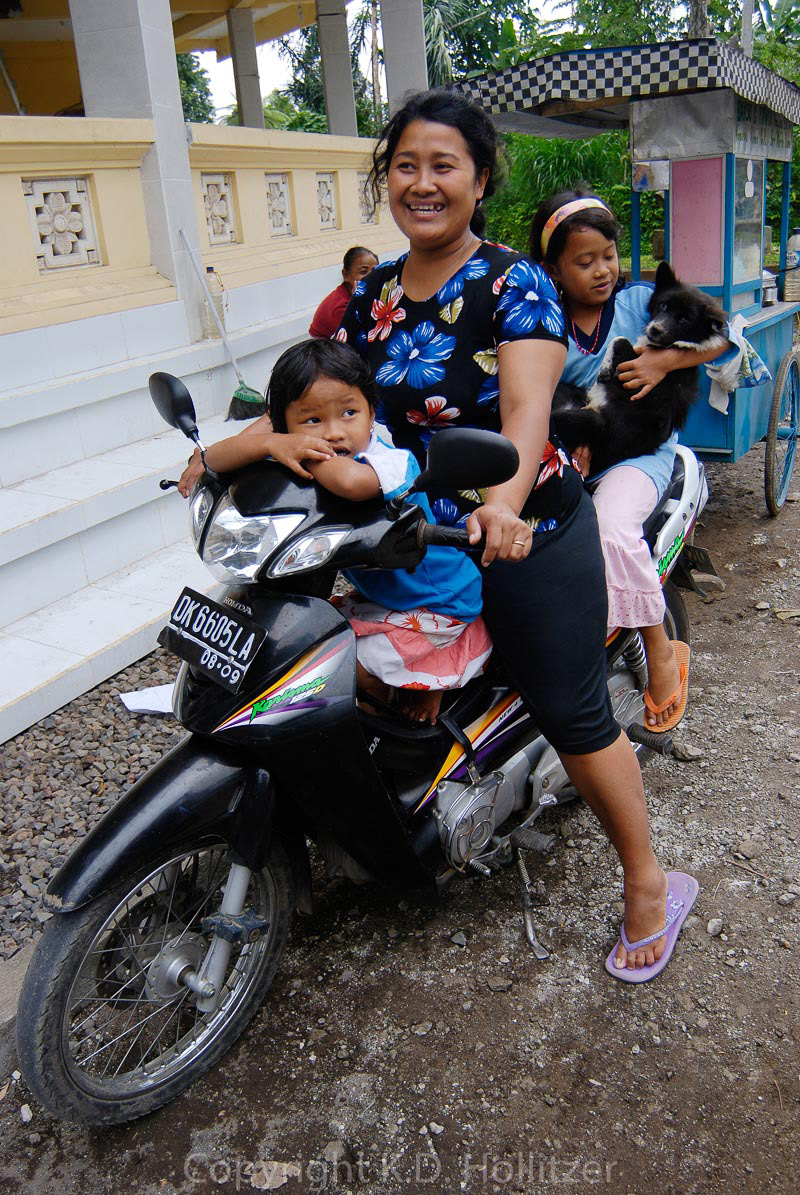
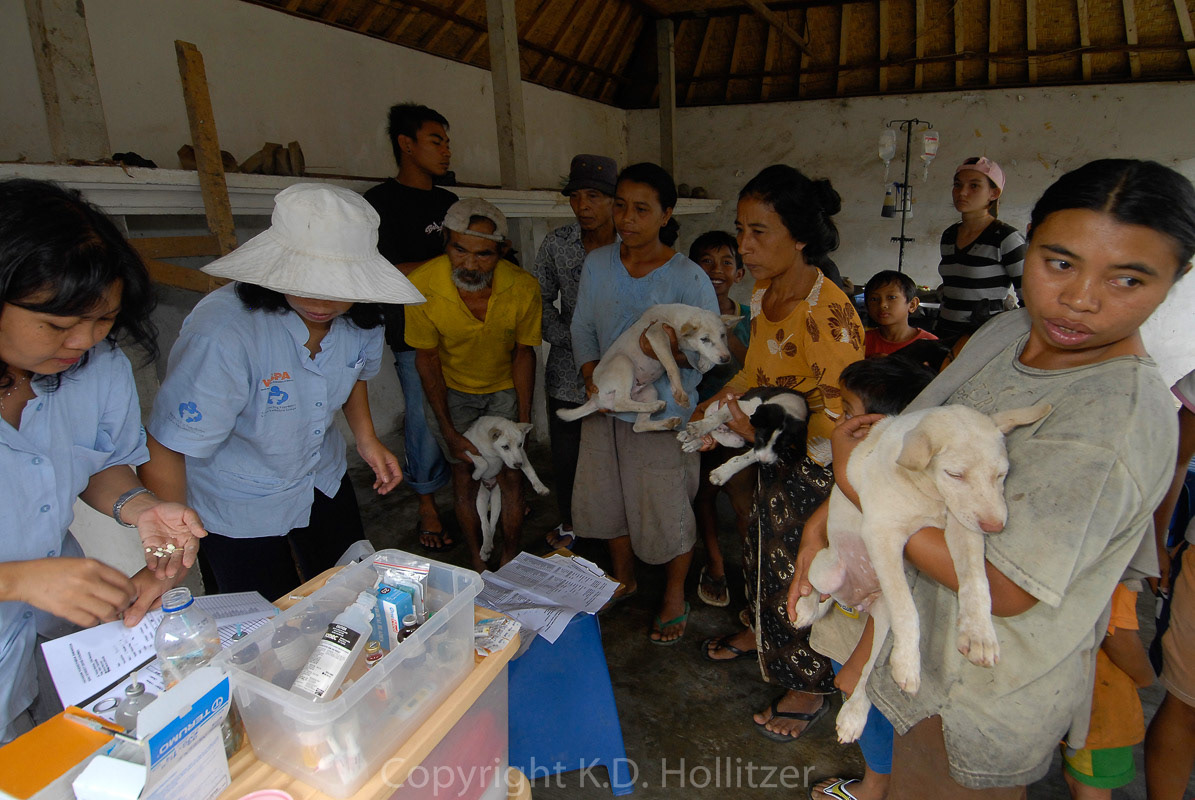
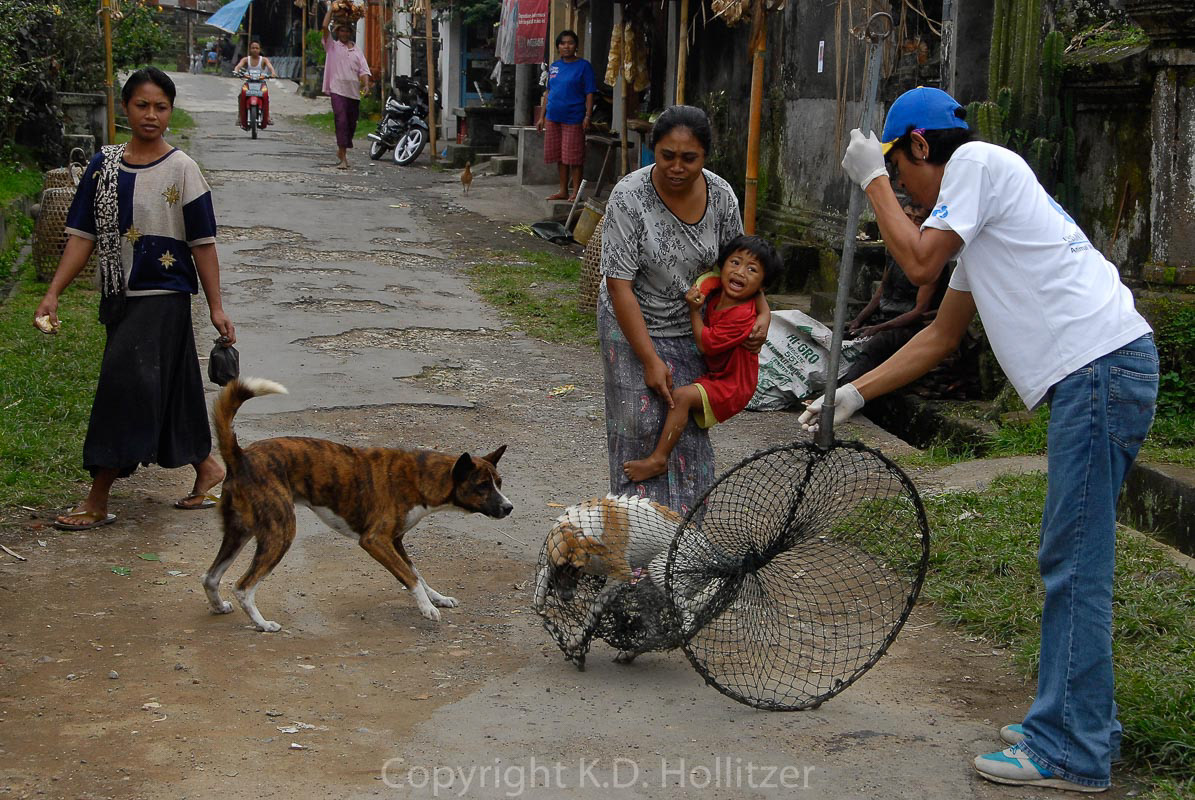
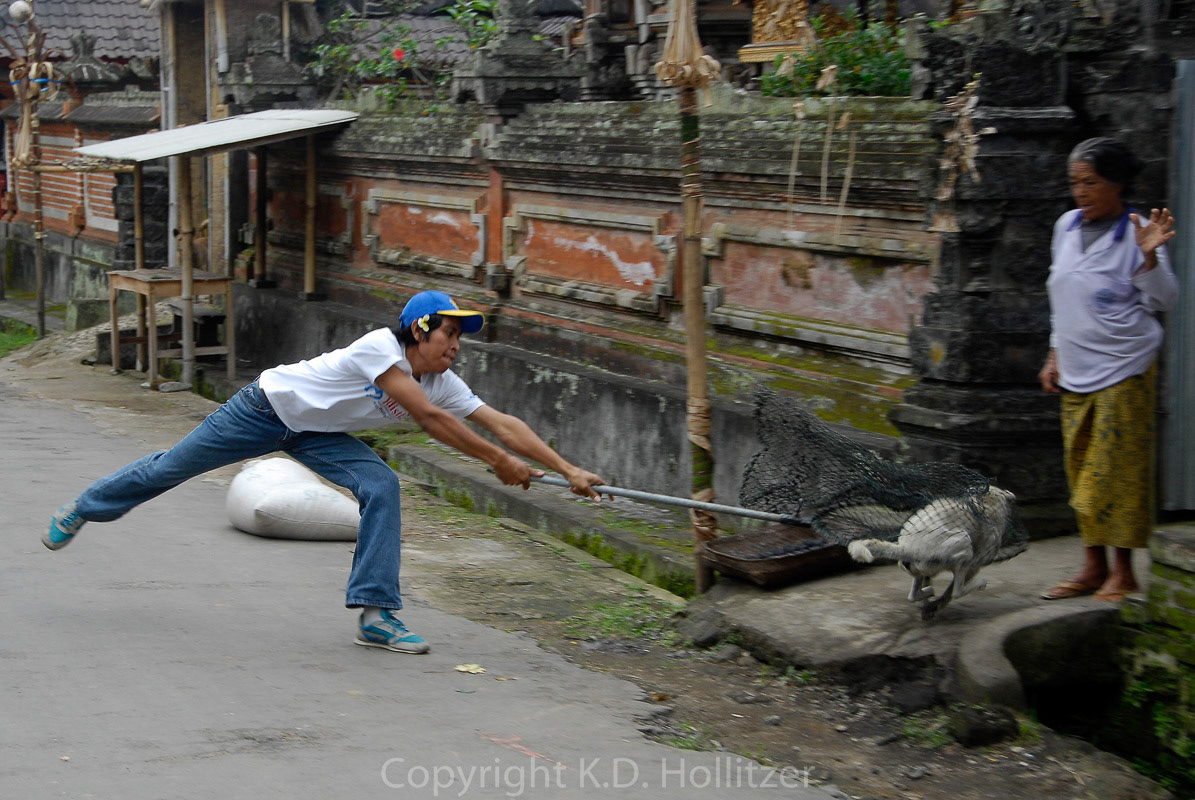
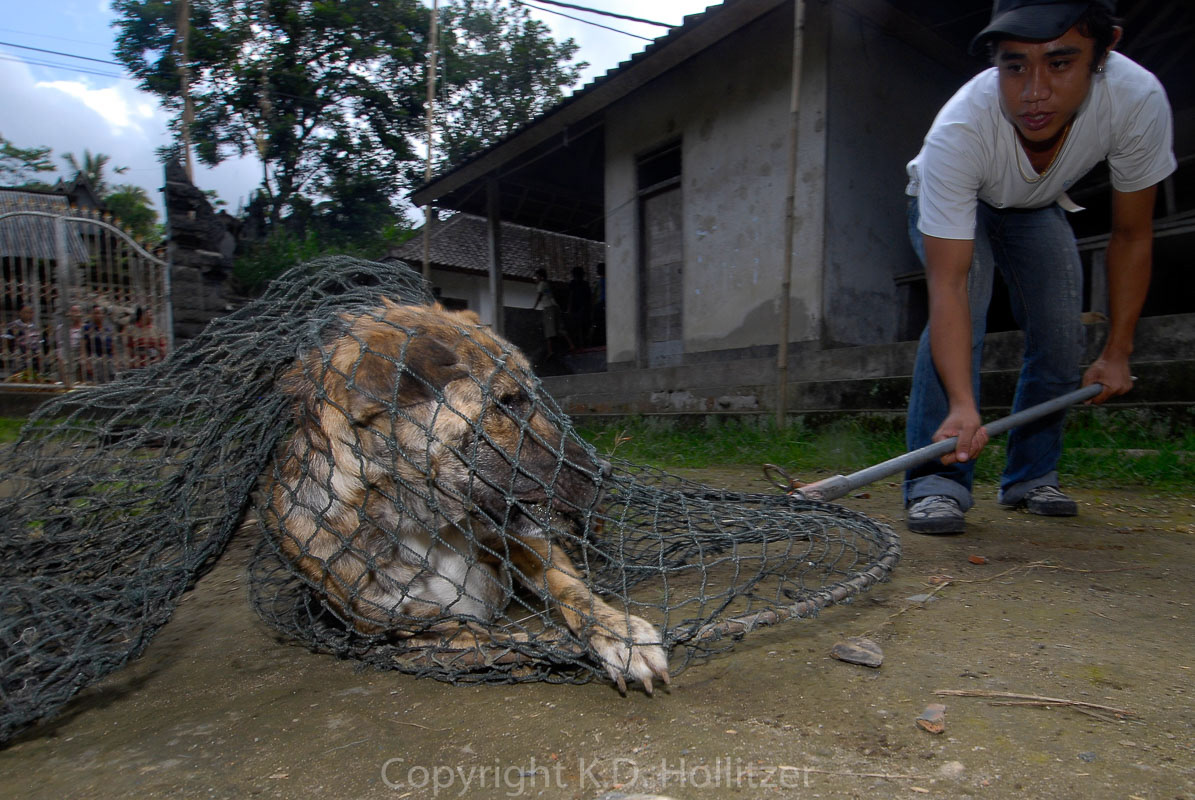
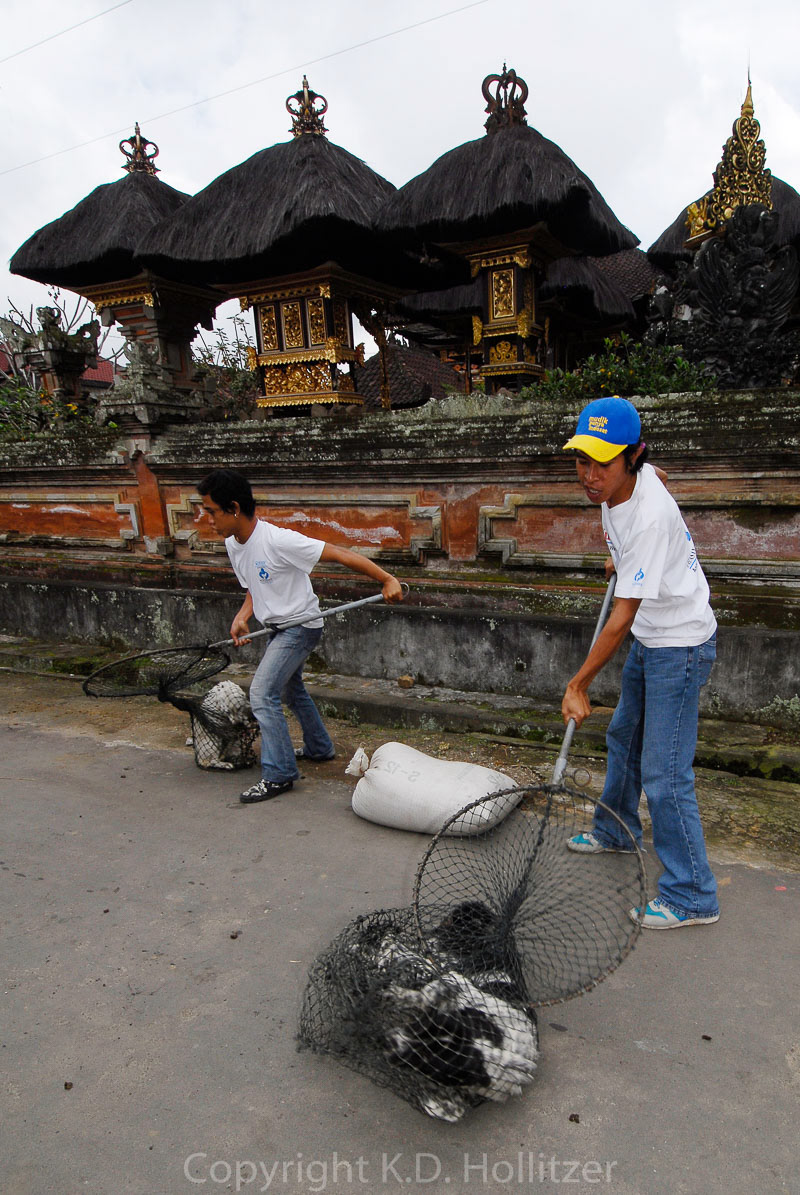
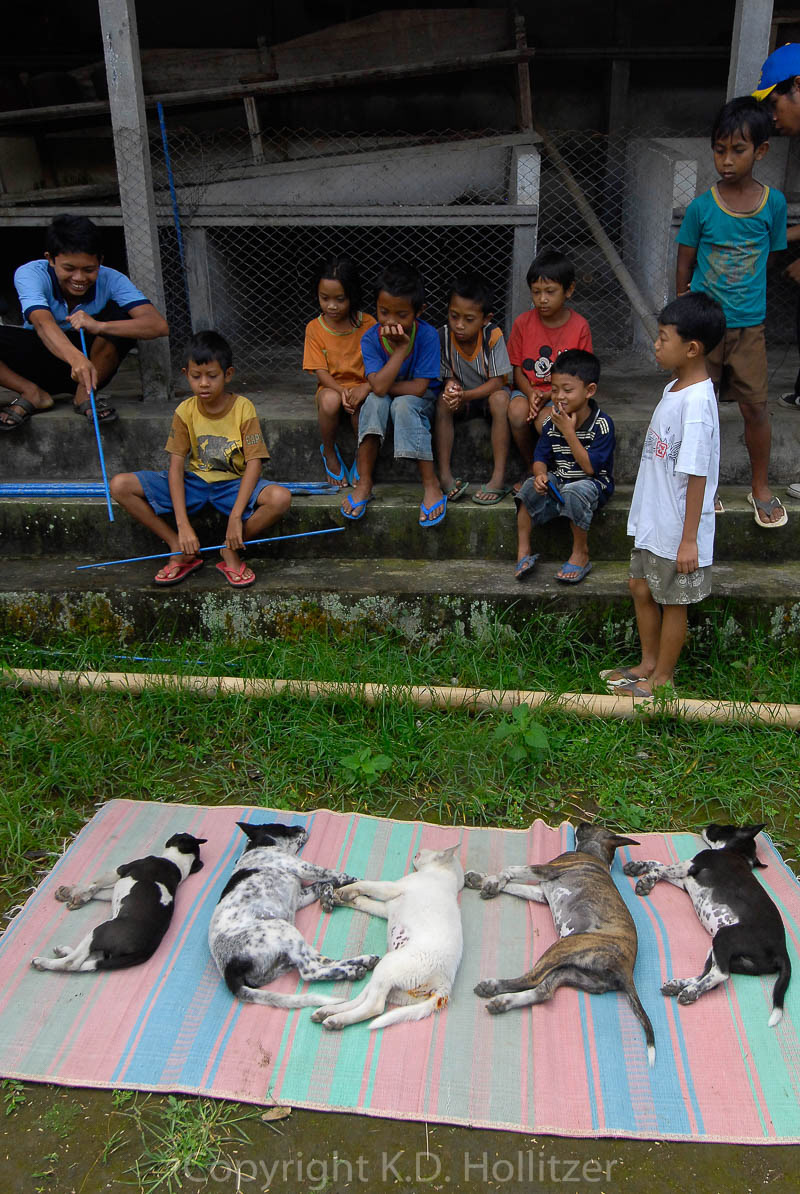
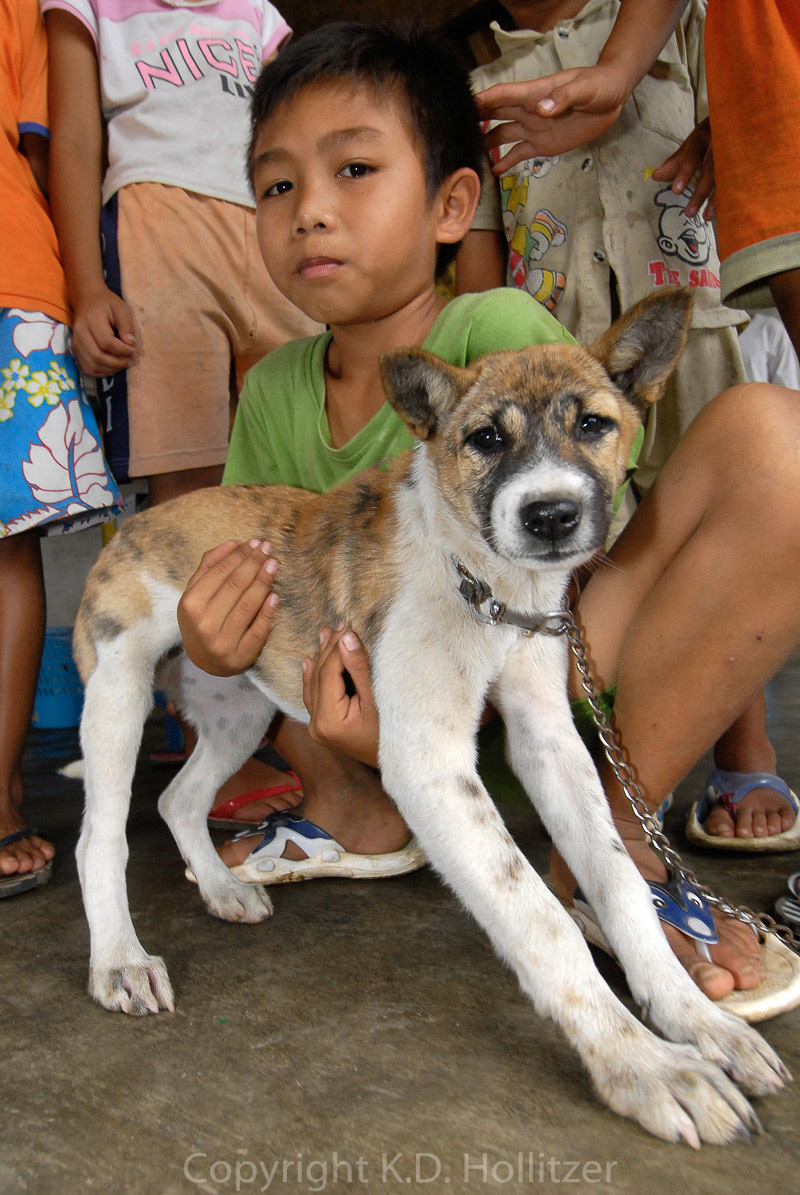
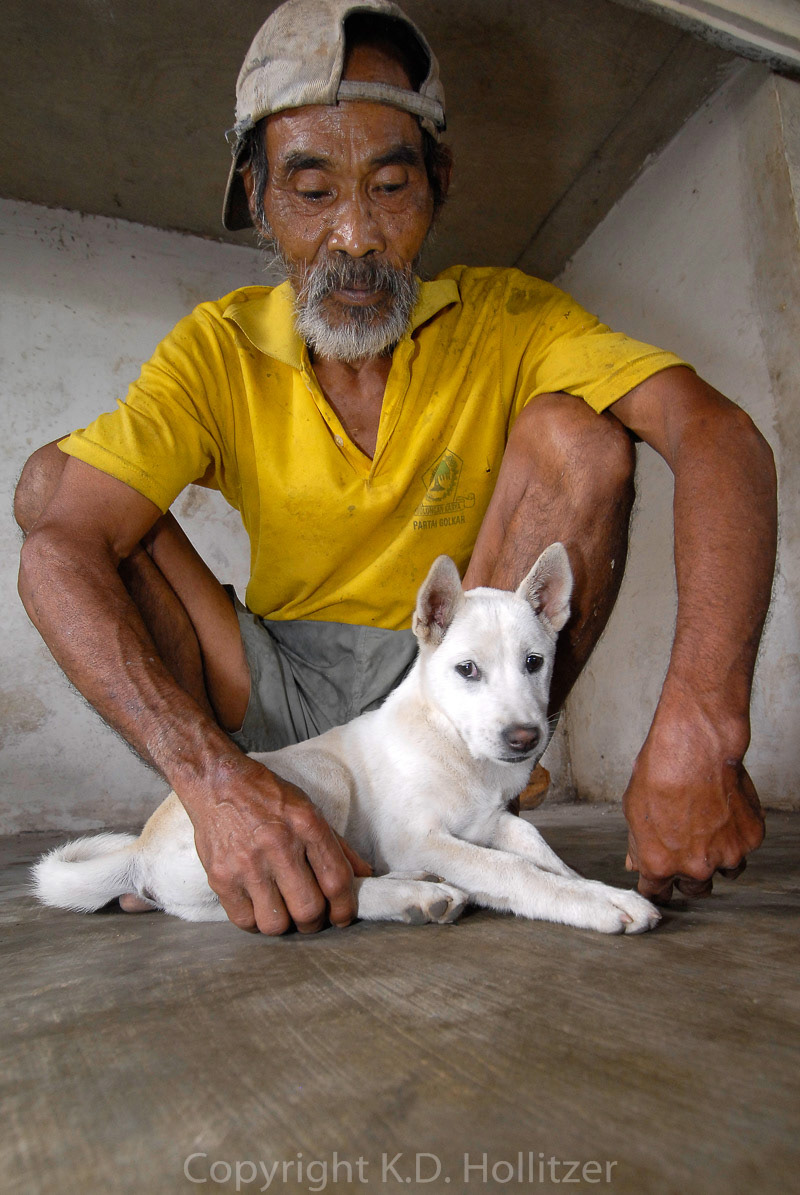
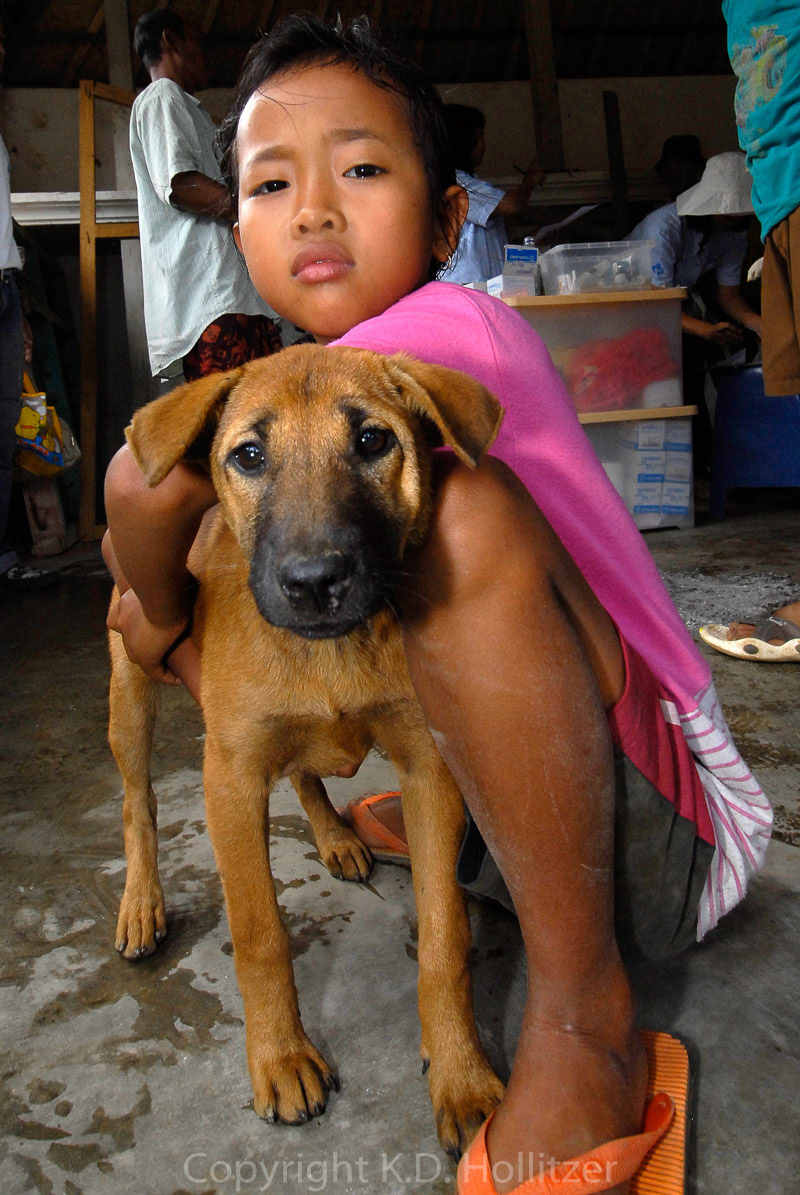


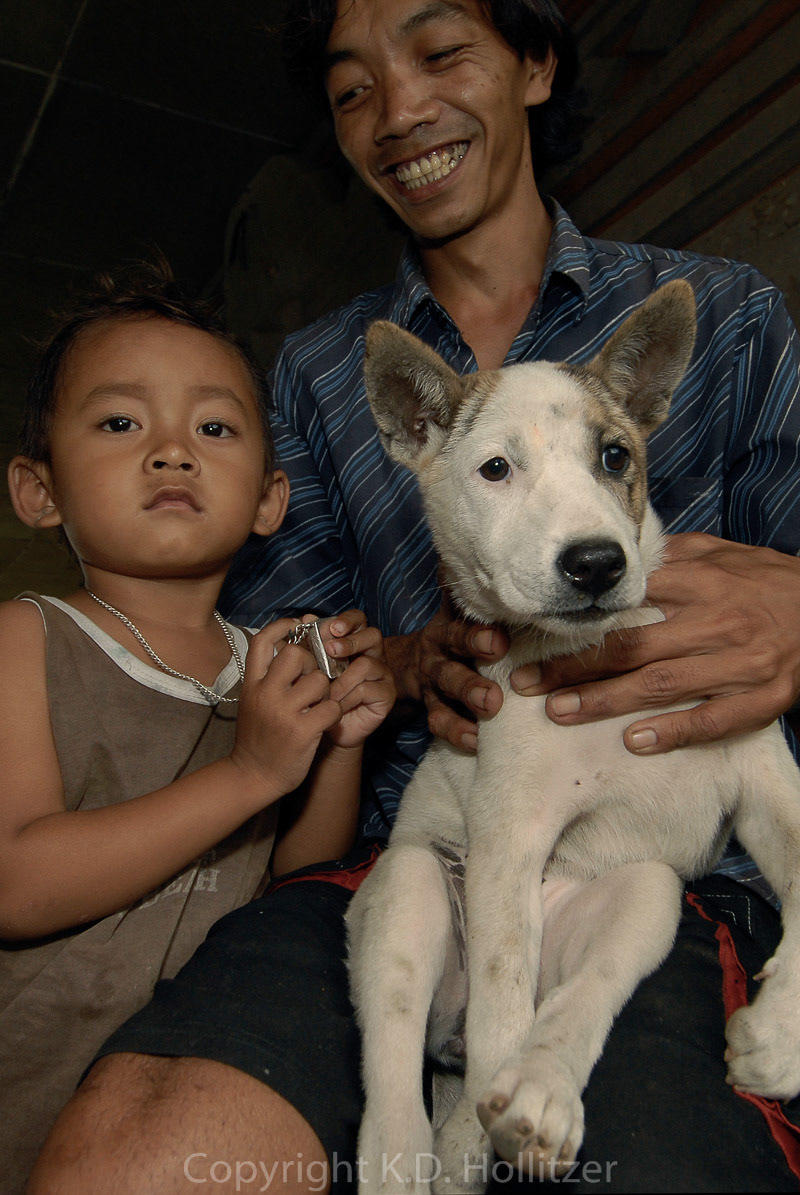
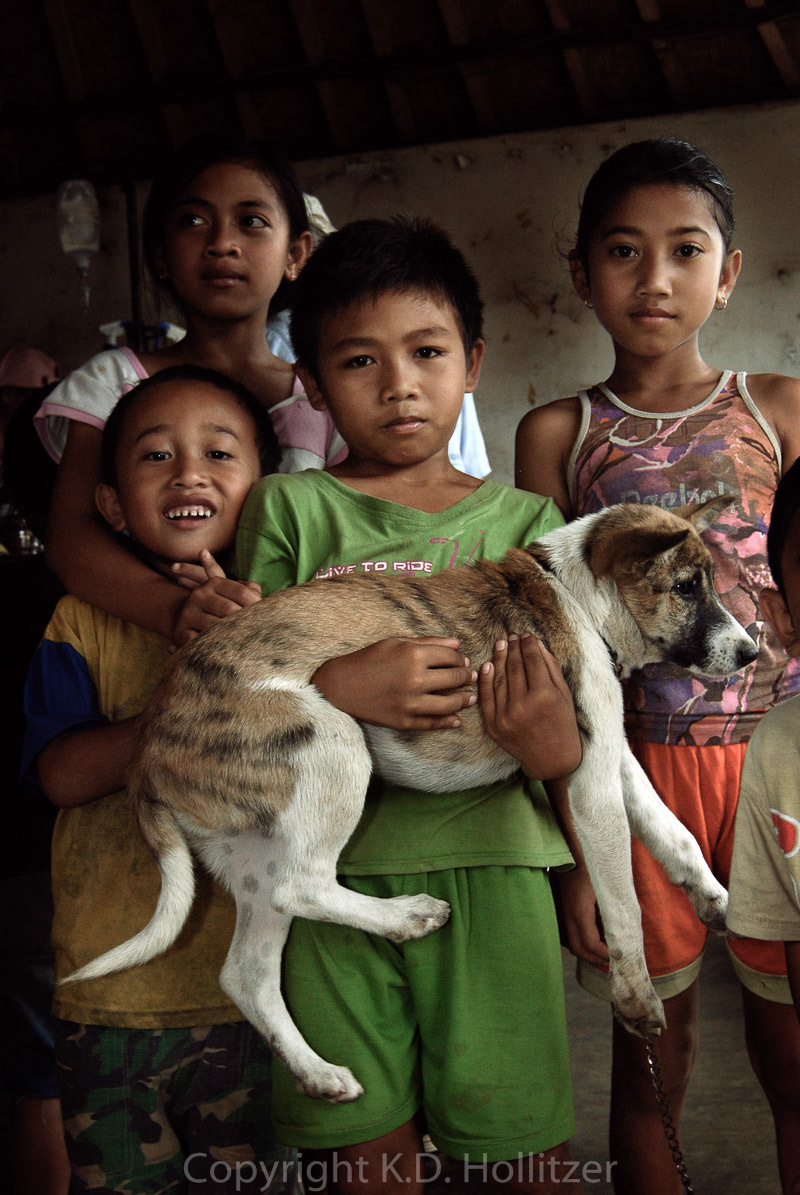

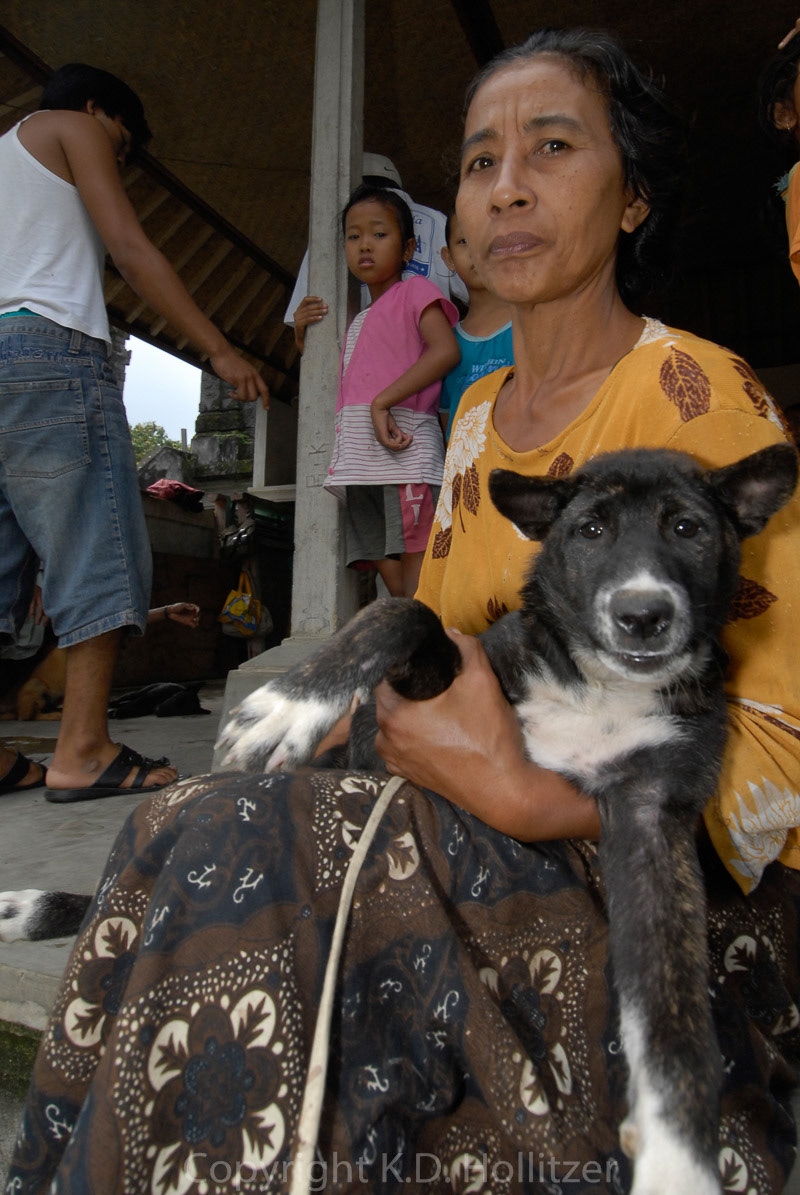
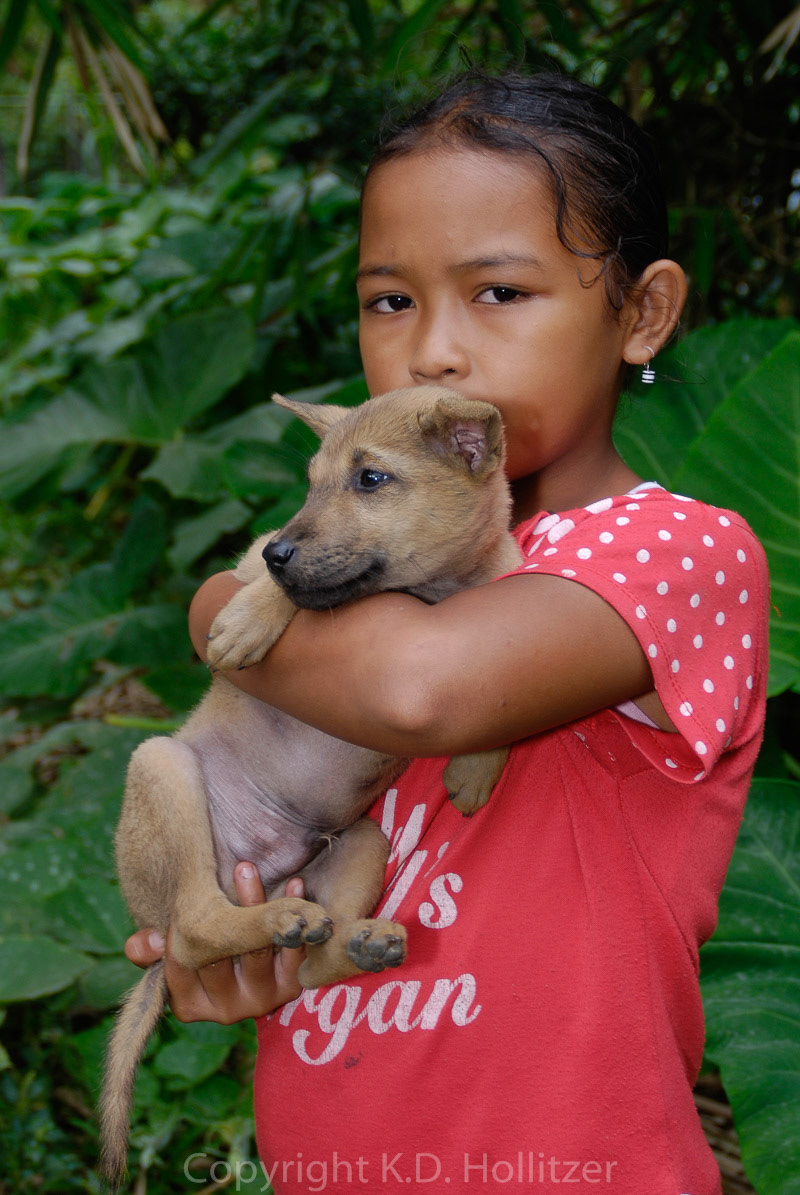
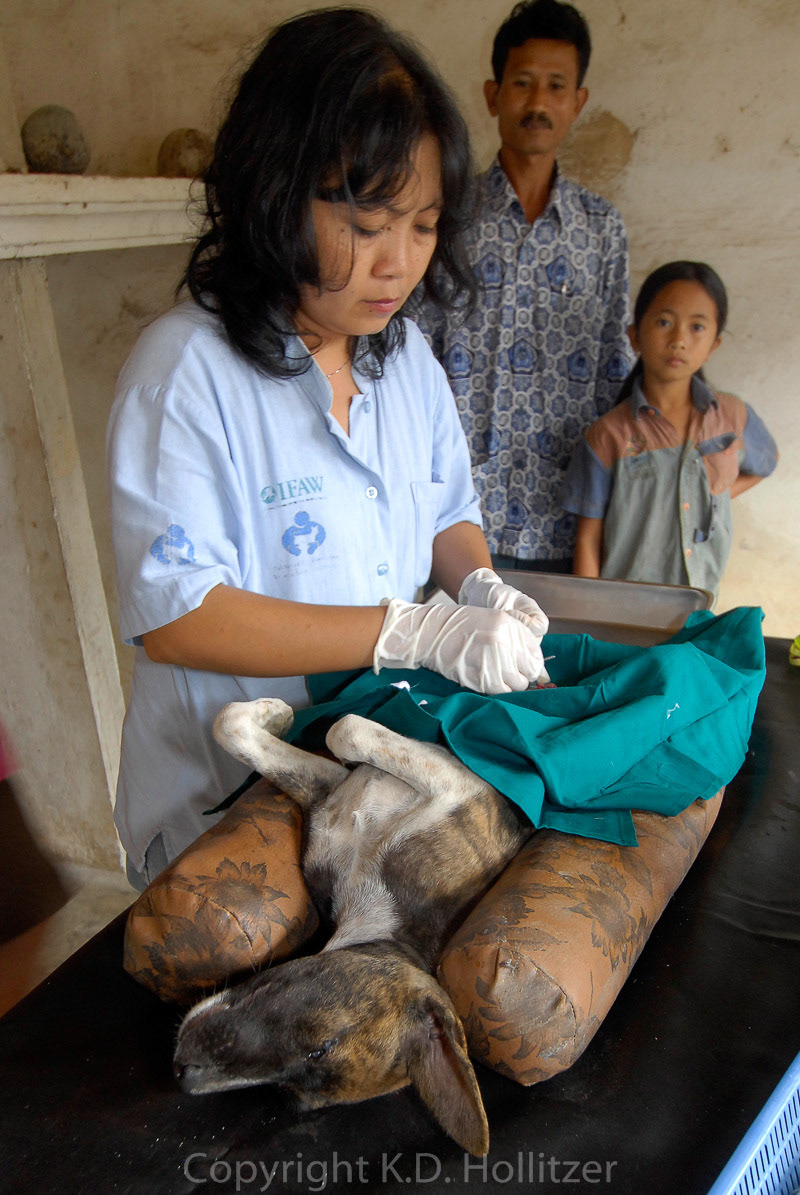
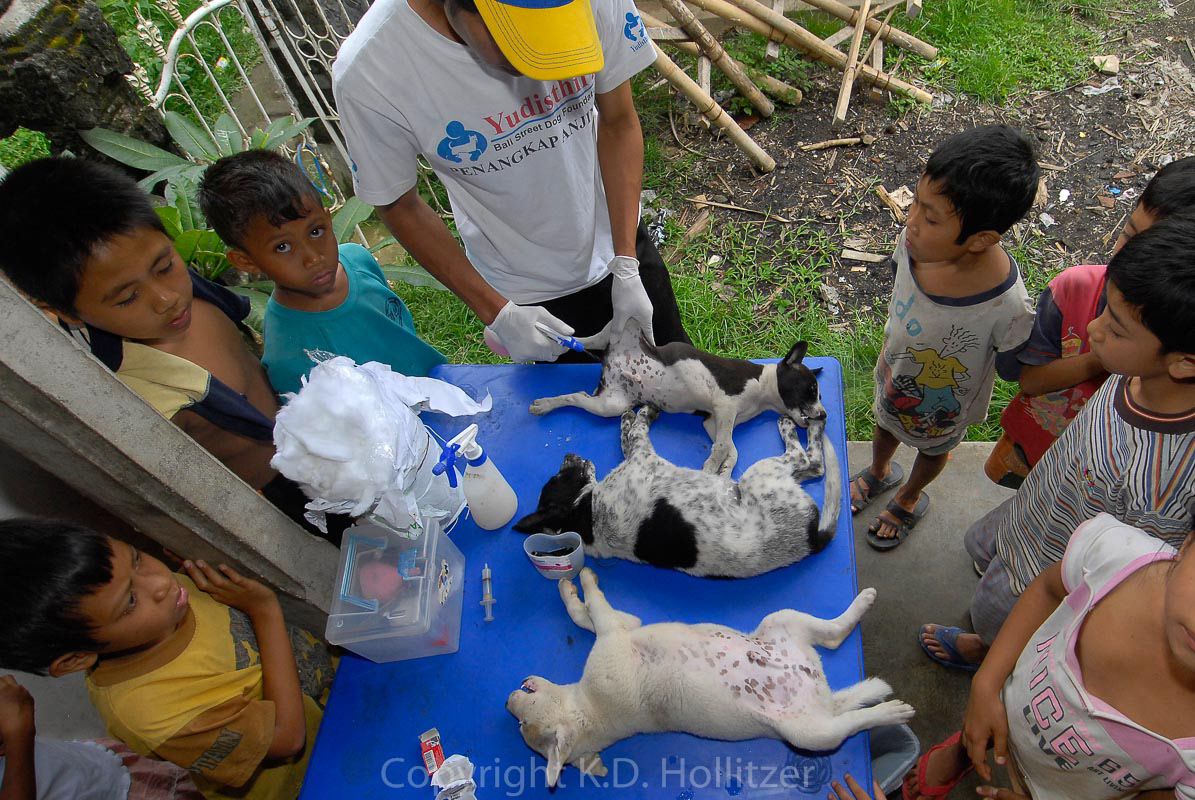
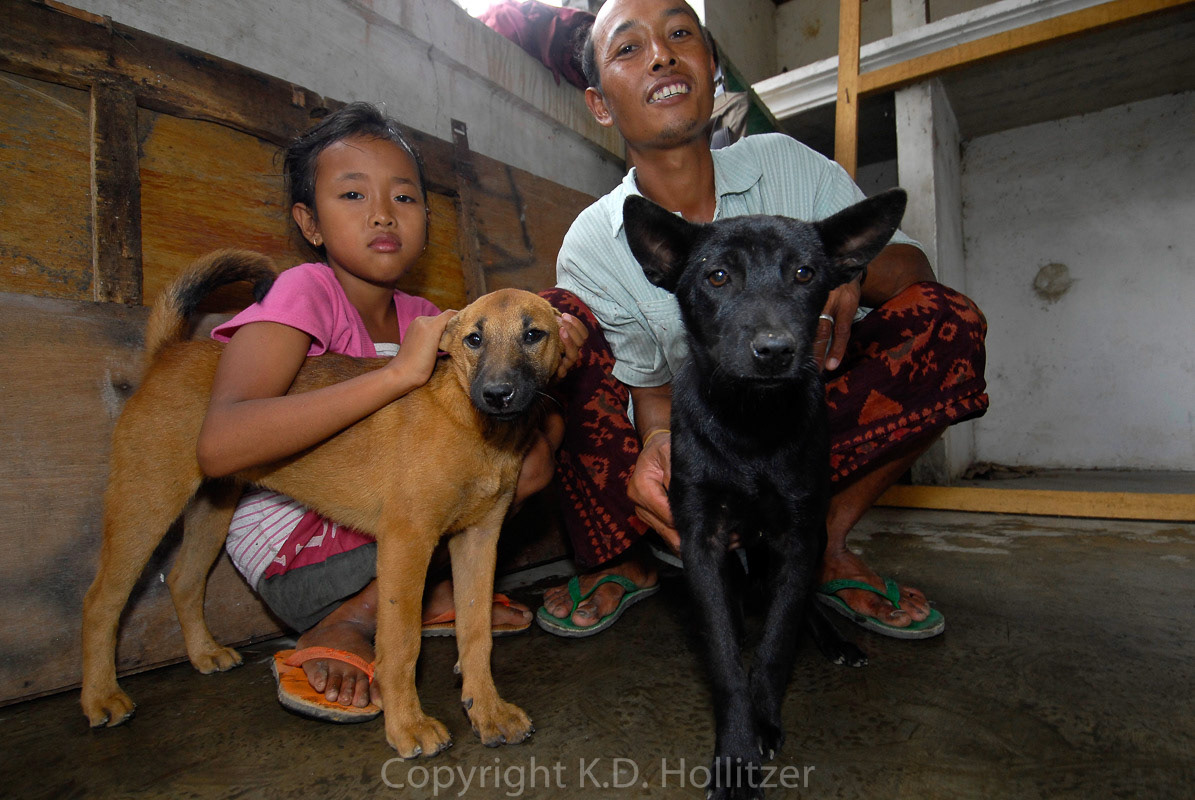
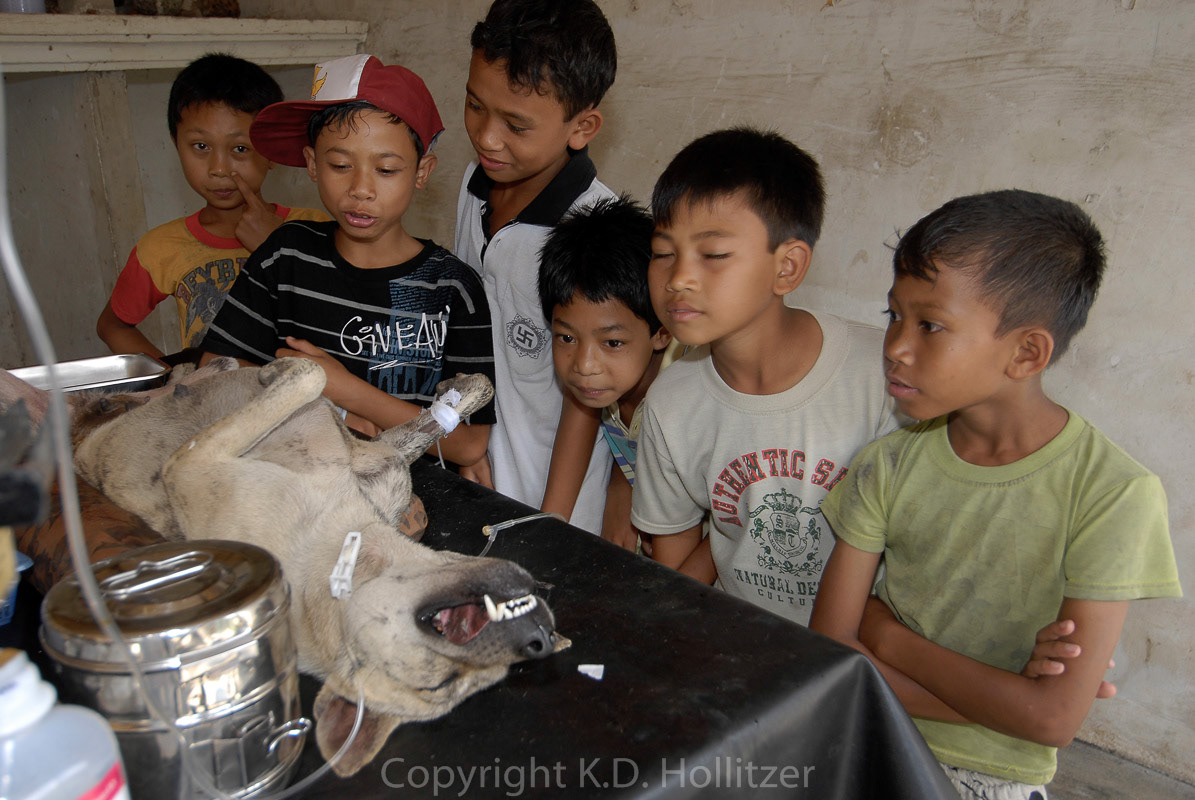

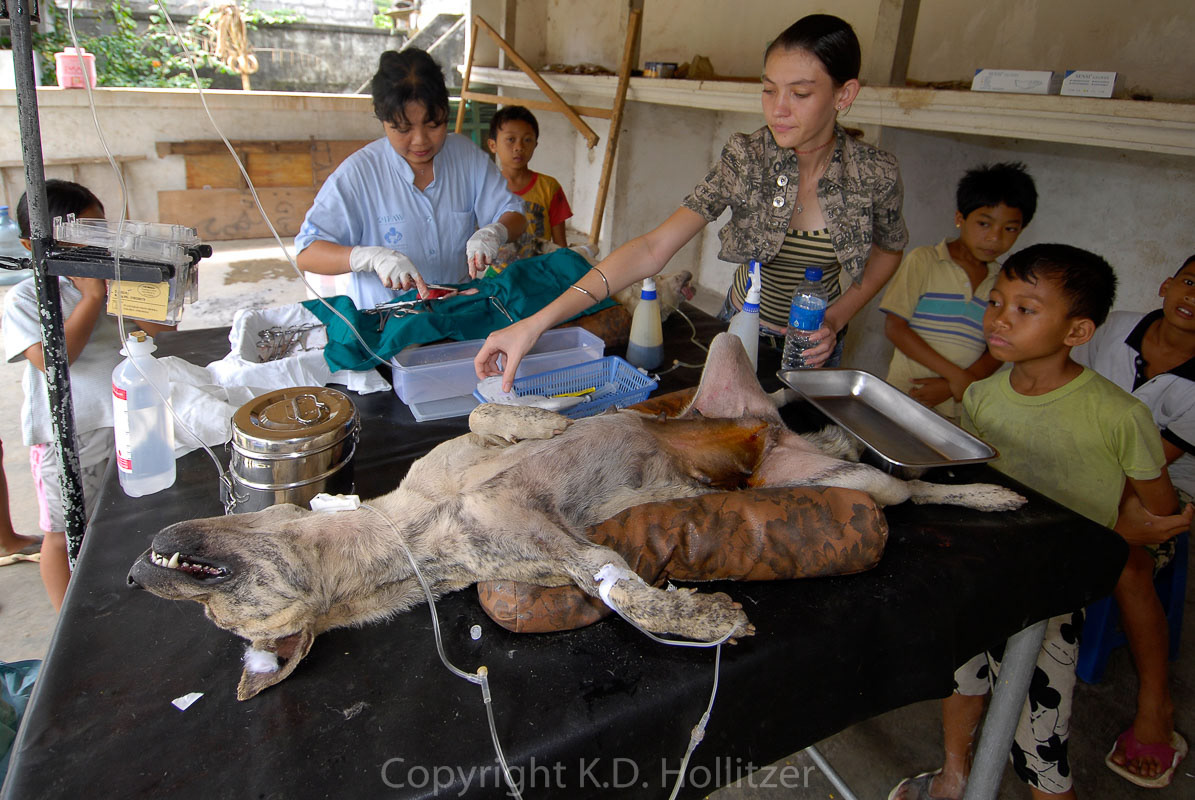

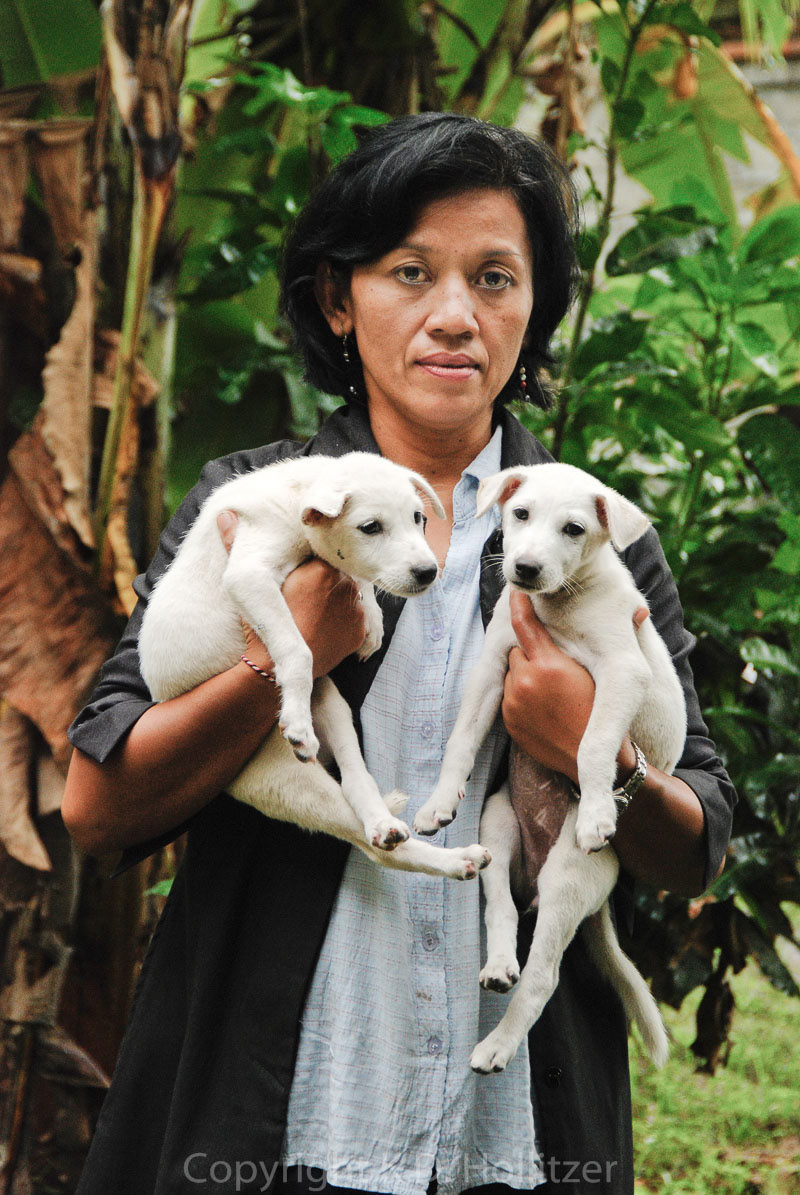
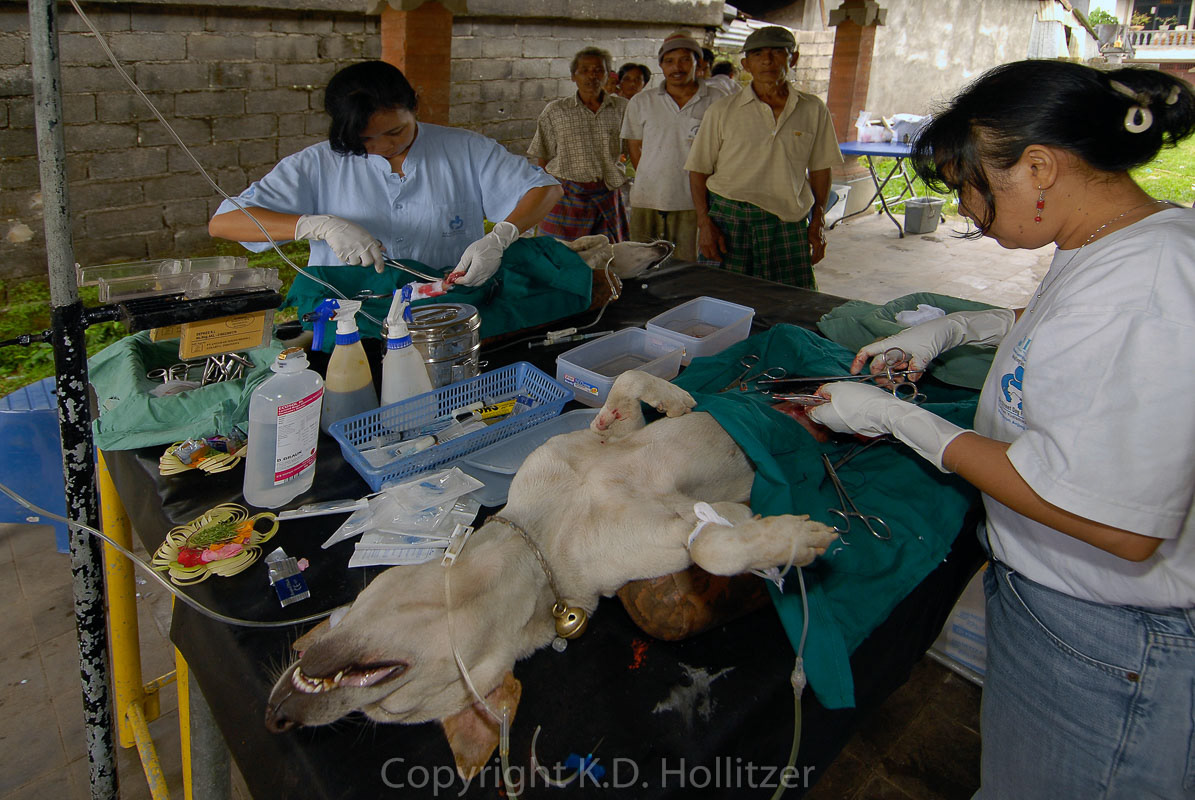
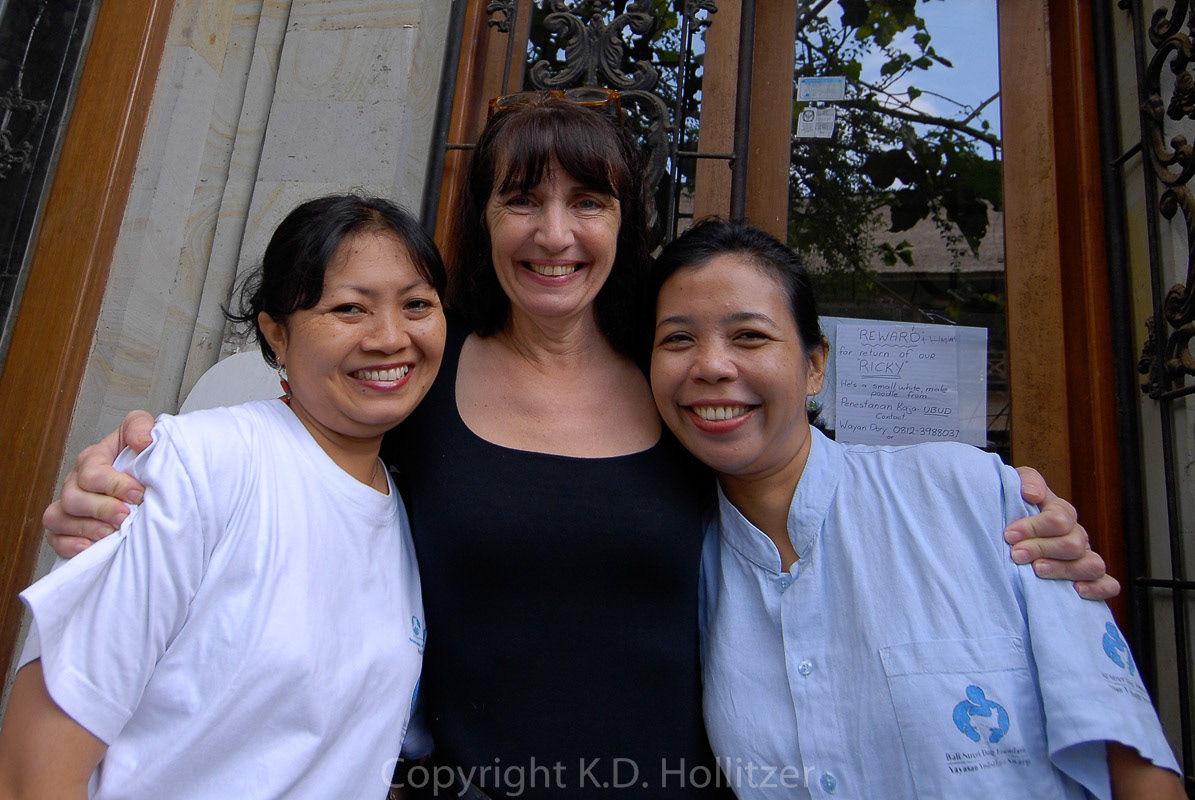
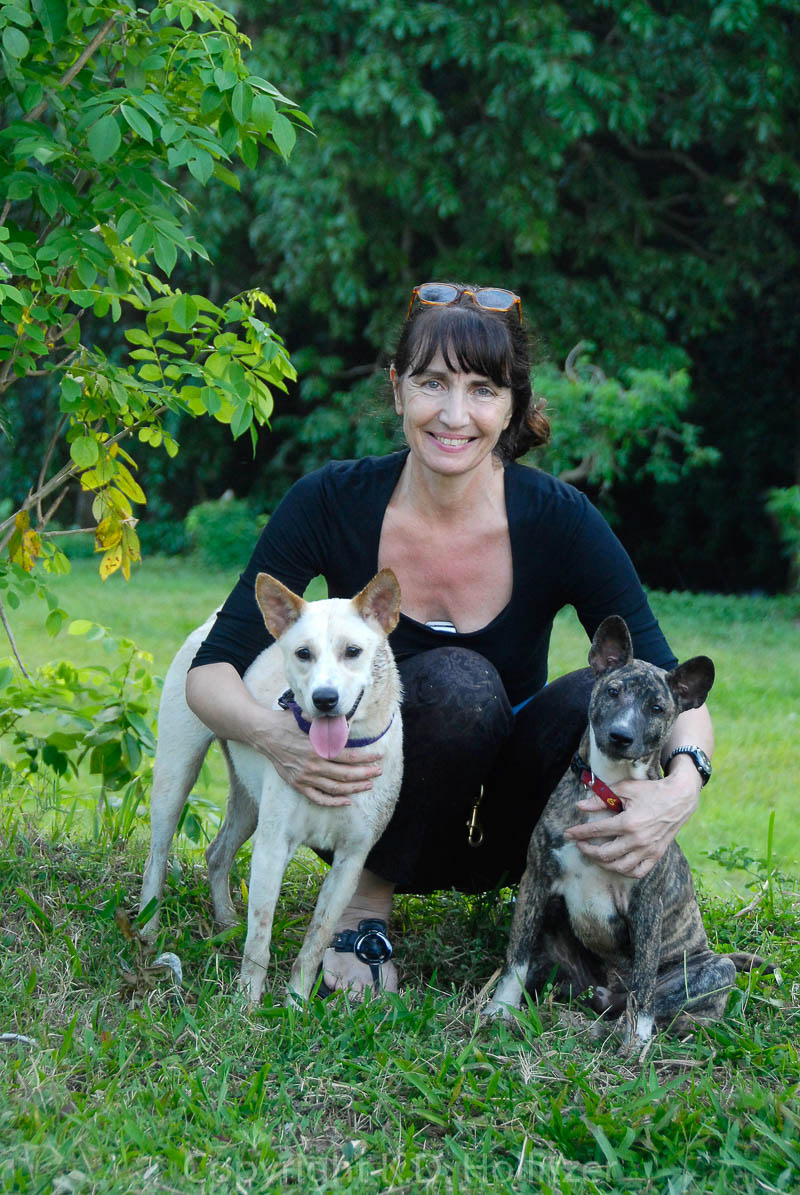

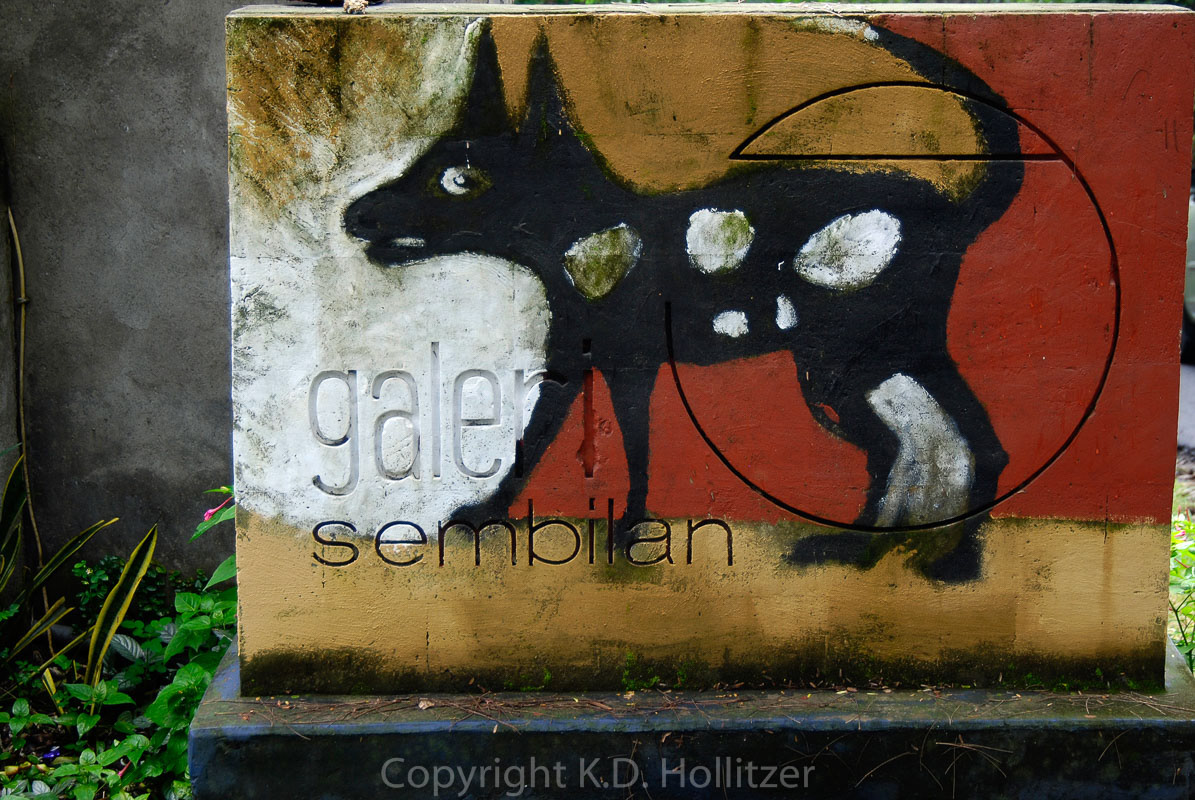
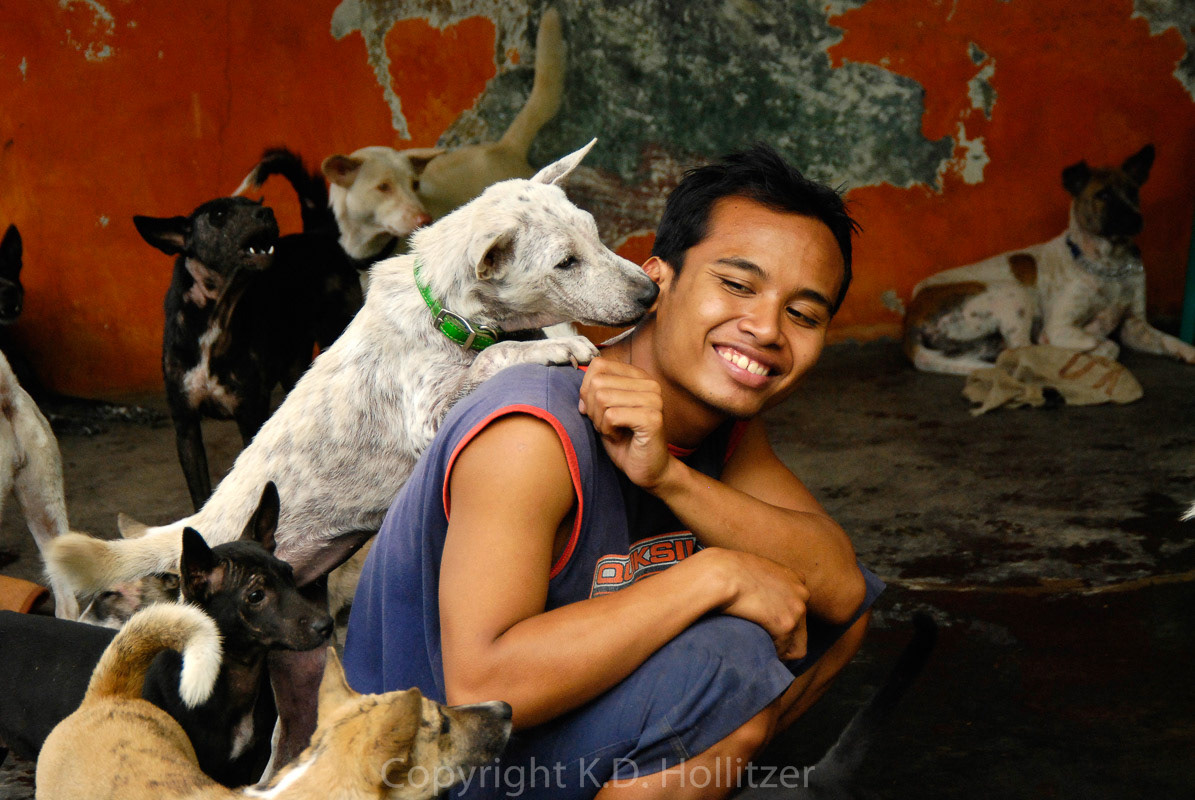
An article published by the US Bark magazine.
On a steamy June morning, employees of the Bali Animal Welfare Association(BAWA) are engaged in one of the most rewarding parts of the job: delivering puppies to an enthusiastic group of new owners—all sixth-graders—in the town of Ubud. The students have completed a course in animal welfare, making them eligible to participate in the second annual “Bali Dog Idol” contest to see who takes the best care of a family pet. Last year, 18 students completed the six-month challenge, which required them to answer questions about responsible dog ownership and strut their pup in front of a live audience. The event proved to be such a success that this year BAWA, the sponsor, has increased the number of contestants to fifty.
“I’m so excited,” says 10-year-old Dayu Bintang, after selecting a female puppy from the BAWA van. “My family is going to help me take care of it. It’s our first pet.”
Though the young girl has never before shared her home with a dog, she knows that many stray dogs roam the streets. In fact, two forage through trash near her as she holds her new puppy. If the power of education—and the joys of pet companionship—work their magic as hoped, then it’s not just this one puppy who will benefit from the “Idol” experience. Bintang and her family may also begin to look more kindly on the dogs outside.
“Education is by far the most important program—and the one I care most about—because it’s the only hope for lasting change,” says California native Janice Girardi, who founded BAWA in 2007 after doing years of her own animal rescue work following her move to Bali to start a jewelry business. “But it’s the program that I end up giving the least amount of attention to because the other problems are so much more pressing.”
Most pressing by far is the excruciating balancing act that requires Girardi to weigh the importance of preventing dogs from being born against preventing dogs from being killed. That is, does she direct BAWA’s limited resources into the spay-and-neuter effort that stops endless litters from being born and then dying on the streets, or does she put her effort into a massive rabies vaccination campaign to save dogs from being killed by strychnine under the government’s “elimination” approach to rabies control?
Life was bad enough for animals in Bali before rabies arrived for the first time last November. For starters, the tropical climate leads to nasty skin problems and parasites. Dogs are killed and maimed every day by crushing traffic. Poverty prevents people from getting the medical care and food they need for themselves, let alone for dogs, and some restaurants still serve dog meat. Then there are religious factors: The Muslim minority considers dogs to be haram, or dirty, while the Hinduism practiced by the majority encompasses animism and animal sacrifice. And while nearly every home and business is casually linked to a dog or two who may bark at an intruder and receive a scrap of food in return, few Balinese realize they should put water out for these dogs or treat their wounds.
Add to this backdrop the arrival of rabies. Nine people have now died from the disease in the capital area of Badung/Denpasar. The government’s initial reaction was to ignore international recommendations for a comprehensive vaccination campaign, electing instead to kill thousands in a mass culling.
“It’s very simple: You have to do mass vaccinations, because dogs are here to stay in Bali,” says Dr. Elly Hiby, head of Companion Animals for the World Society for the Protection of Animals (WSPA). “It [a mass campaign] is not ridiculously difficult and it’s not even that expensive, but if you haven’t done it before, then the idea of implementing it can be overwhelming.”
Meeting regularly with government officials, Girardi and her staff are trying to convince the government that BAWA could play a key role in that implementation, and they are making some headway. So far, officials have agreed not to kill any dogs in the affected area who have orange collars, signifying that they have been vaccinated by BAWA, which is catching, tagging, vaccinating and collaring about 600 dogs a week. Girardi has begged the government to let BAWA take on the whole island. “We’ll do it,” she says. “I don’t know how, but we’ll do whatever it takes to save dogs.”
Coming from Girardi, these aren’t idle words. Before she founded BAWA, she spent years loading injured dogs onto makeshift cardboard stretchers and driving them over an hour to the vet in Denpasar. Now she can call the 24-hour animal ambulance that she funded through BAWA.
A highly acclaimed jewelry designer, Girardi creates collections for Sundance, Red Envelope and other high-end outlets and puts most of the profits into BAWA, an organization whose programs include a 24-hour clinic that provides low-cost treatment to local animals and cares for rescued puppies and kittens until they can be rehomed, and the ambulance, which is staffed with a vet and dog-catchers (mercifully adept at using a net). The ambulance responds to calls from around the island and treats street dogs for skin and internal parasites, wounds and starvation.
With funding from the Bali Street Dog Fund of Australia, BAWA also runs a spay/neuter van that goes into the field six days a week, conducting up to 40 procedures a day in “M*A*S*H”-style setups, and treating skin conditions and wounds.
Other BAWA initiatives include an educational campaign, which Girardi is hoping to expand—in part by videotaping a public service announcement on animal welfare with a well-regarded local high priest. She is also trying to help craft Indonesia’s first animal welfare laws, and she oversees a feeding program in which at-risk dogs get daily meals. (Girardi herself feeds about 40 dogs a day on her commute.) BAWA staff members rescue puppies in immediate danger, sometimes socializing them in the offices of the jewelry company. (Employees often share their in-boxes with napping puppies.)
Because not enough adoptive homes exist—particularly for adult dogs—Girardi treats and returns older dogs to the locations at which they were found.
Treat-and-release works here because the “Bali Dog” is a pretty savvy and resourceful animal, who—if health and food requirements are met—can have a perfectly fine life without the trappings that most dog-obsessed Westerners would consider essential. Similar to the dingo, they’re indigenous animals beautifully adapted to their surroundings. Typical Bali dogs are long and lean, with very short hair. They’re also super-smart, naturally wary and inexhaustible barkers. In other words, Ubud isn’t overrun with Shih Tzus and Golden Retrievers that would be helpless on the streets.
“True Bali street dogs—those who have never had a home—can be happy if they have their own corner of pavement and if they have access to clean water, food, medical care and sterilization. That’s our goal,” says Paula Hodgson, co-founder of the Bali Street Dog Fund. “I have seen many street dogs who are well-fed and healthy (thanks to BAWA) and are happy to sleep on the warm pavement.”
Of course, reaching this goal takes a lot of manpower. BAWA employs 30 full-time staff members and could easily keep twice that many busy around the clock. With funding so precarious in this economy, Girardi is increasingly turning to volunteer help. Any enterprising animal lover can be put to immediate good use. Vicki Parker of Melbourne, Australia, is so committed to the cause that she goes twice a year, typically helping set up for operations and walking the beaches to assist dogs in distress.
“It can be very heartbreaking,” she says. “But the work is challenging and very rewarding and Janice is such an inspiration.”
Though the pace of progress may be achingly slow, there are clear signs that BAWA’s message is taking hold. For instance, Girardi now receives calls from community leaders two or three times a week, requesting help with unsterilized or ill dogs; even a year ago, it would have been BAWA’s job to initiate contact. BAWA’s outdoor traveling clinics overflow with repeat clients, along with their friends and neighbors. At one outpost, a little boy is given a liver treat for one of his dogs, and he carefully breaks it in half to share with the other dog at home. Dogs with collars, and some on leashes, are becoming a common sight on the streets of Ubud.
“I grew up never wanting to touch or even look at a dog,” says Nidya Viani, who works in Girardi’s jewelry company and was raised a strict Muslim. “But I’ve learned from Janice that if you love a dog, it will love you right back.”
Viani did some research after finding herself in the midst of dog lovers and learned that haram had its roots in rabies prevention rather than an innate dislike of dogs, and that the Prophet Mohammed actually encouraged the love of animals. “Now I don’t have to be afraid that I’m going against my religion,” she says. Viani has even become a frequent cuddler with office fixture and Bali Dog ambassadress Tina Turner (who has great legs and a throaty bark).
“BAWA is making a lot of progress in changing the way that people take care of their dogs,” says Dr. Son Soeharsono, a vet who has been practicing since 1974 and works with BAWA on many issues. “But there is still a lot to do.”
And that’s what keeps Girardi up nights. She is particularly frustrated by people who love animals but won’t take action because they don’t think one person can make a difference in the face of centuries of entrenched beliefs. This was the case with a government official who privately endorsed mass vaccination for rabies, yet refused to speak out against culling.
“I told him that there are countless examples of people acting alone and having a huge impact,” she said.
In fact, he was looking at one.